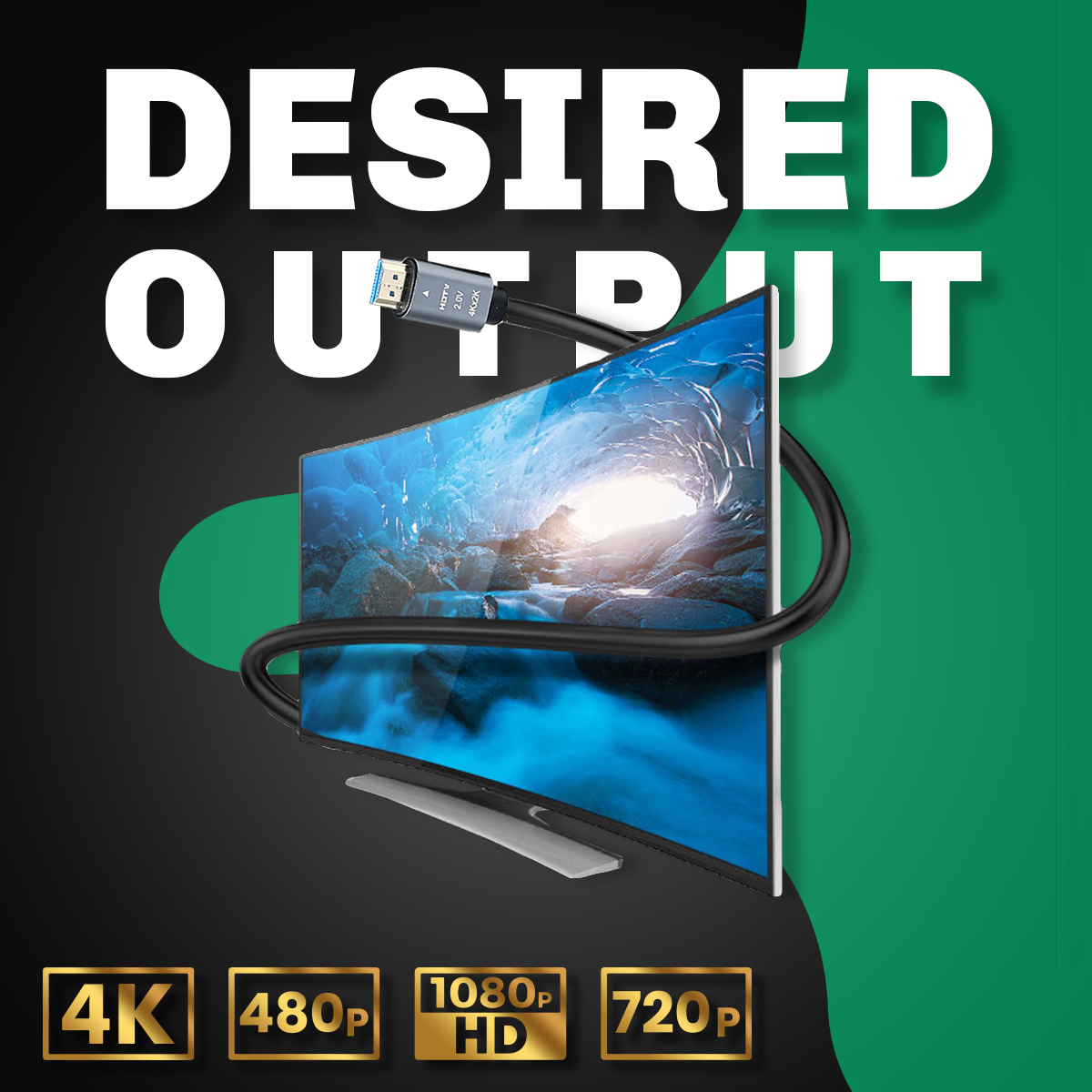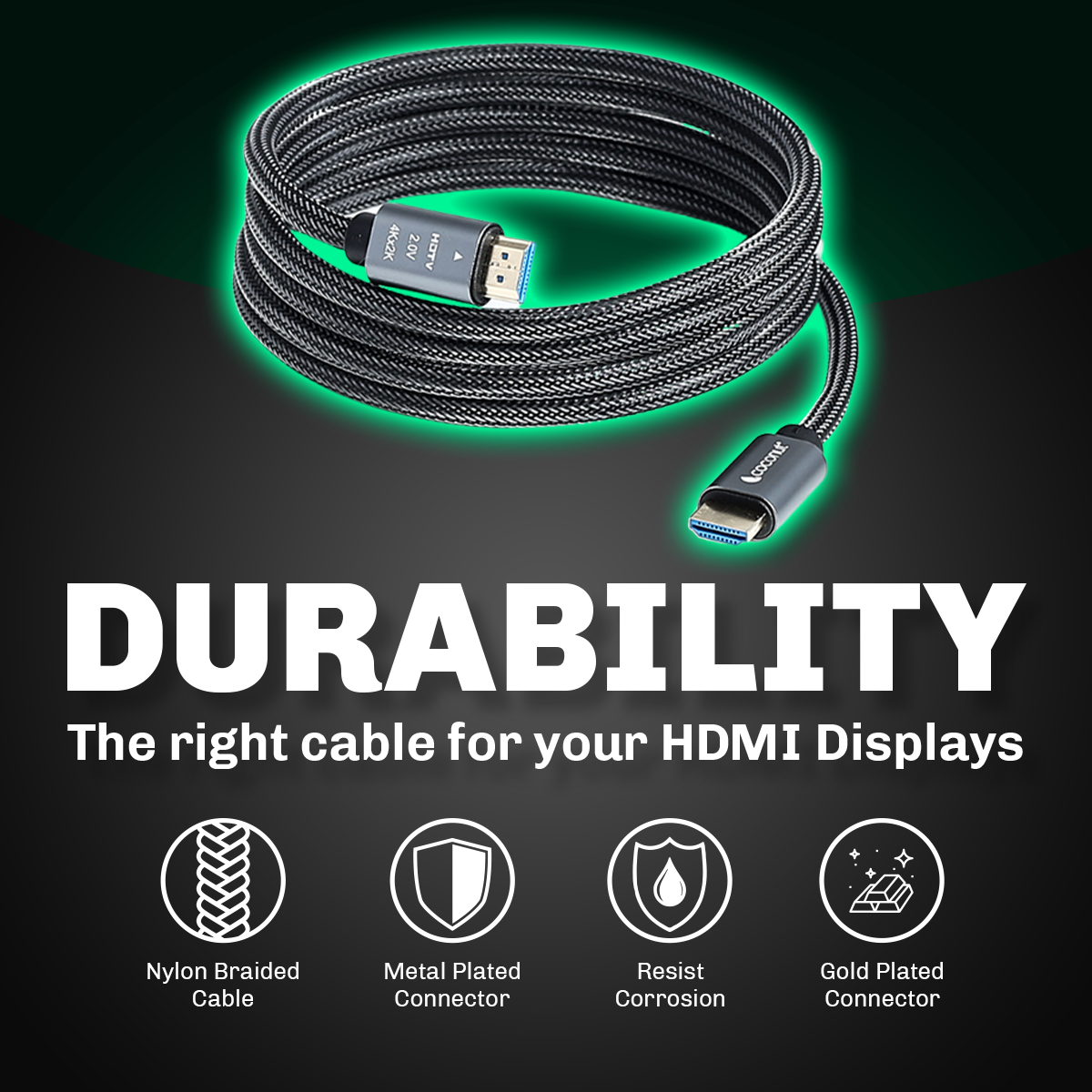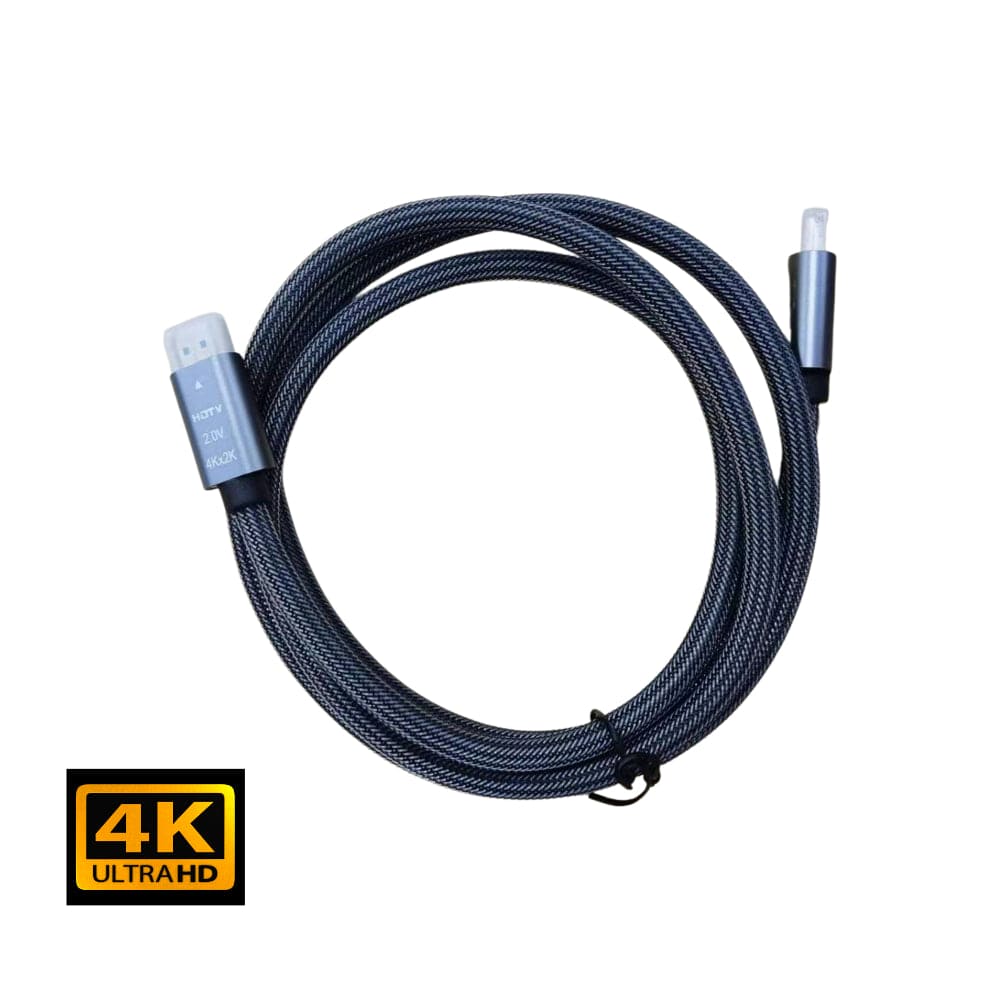In today's world of high-definition entertainment, the HDMI cable is the unsung hero that connects our devices to our TVs and monitors. While it may seem like a simple cable, choosing the right HDMI cable can significantly impact your viewing experience. Let's explore why HDMI cables matter for your TV setup.
More Than Just a Wire: Understanding HDMI's Role:
HDMI (High-Definition Multimedia Interface) cables transmit both audio and video signals digitally, providing a high-quality connection between devices like Blu-ray players, gaming consoles, streaming devices, and your TV. This digital transmission eliminates the need for separate audio and video cables, simplifying your setup and improving signal quality.
Why HDMI Cables Matter:
-
High-Definition Quality: HDMI cables are designed to transmit high-definition video and audio signals, ensuring a crisp and clear picture and immersive sound.
-
Simplified Setup: A single HDMI cable replaces multiple cables, making setup easier and reducing cable clutter.
-
Versatility: HDMI is used in a wide range of devices, from TVs and monitors to gaming consoles, Blu-ray players, and streaming devices.
-
Future-Proofing: Newer HDMI standards support higher resolutions, refresh rates, and advanced audio formats, ensuring your setup is ready for future technology.
Choosing the Right HDMI Cable: Key Considerations:
-
HDMI Version: Different HDMI versions support different features and bandwidths. For 4K content, you'll need a high-speed HDMI cable that supports HDMI 2.0 or higher.
-
Cable Length: Choose a cable length that is appropriate for your setup. Avoid using excessively long cables, as they can sometimes degrade signal quality.
-
Build Quality: Look for a well-constructed cable with sturdy connectors and shielding to prevent interference.
-
Price: While there are expensive HDMI cables available, you don't necessarily need to spend a fortune. A standard high-speed HDMI cable will suffice for most setups. Check the hdmi cable price before buying.
Types of HDMI Cables and Connectors:
-
Standard HDMI Cable: Suitable for basic HD content.
-
High-Speed HDMI Cable: Supports 4K and other high-resolution content.
-
HDMI to HDMI Cable: The standard connection type for most devices.
-
HDMI to Type C Cable/USB C to HDMI Cable: Used to connect devices with USB-C ports (like laptops and smartphones) to HDMI displays.
-
USB to HDMI Cable: Used to connect devices with USB ports to HDMI displays (often requires driver installation).
Connecting Different Devices:
-
HDMI Cable for TV: Use a high-speed HDMI cable to connect your Blu-ray player, gaming console, or streaming device to your TV.
-
Connecting a Laptop to a TV: Use an HDMI to HDMI cable or a USB C to HDMI cable (depending on your laptop's ports).
-
Connecting a Smartphone to a TV: Use an HDMI to Type C cable or a USB to HDMI cable (depending on your smartphone's ports).
Finding the Best HDMI Cable:
For most users, a standard high-speed HDMI cable will be sufficient. If you're looking for the best hdmi cable for advanced features like 8K resolution or high refresh rates, you may need to invest in a premium certified cable.
Conclusion:
While often overlooked, HDMI cables play a crucial role in delivering high-quality audio and video to your TV. By understanding the different types of HDMI cables and choosing the right one for your setup, you can ensure the best possible viewing experience.
(Call to Action: What type of HDMI cable do you use for your TV setup? Share your thoughts in the comments below!)



